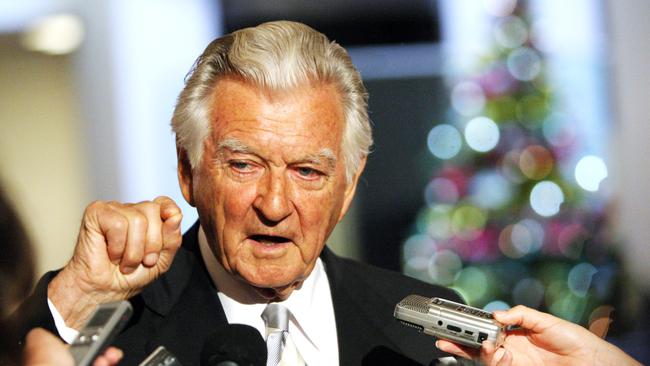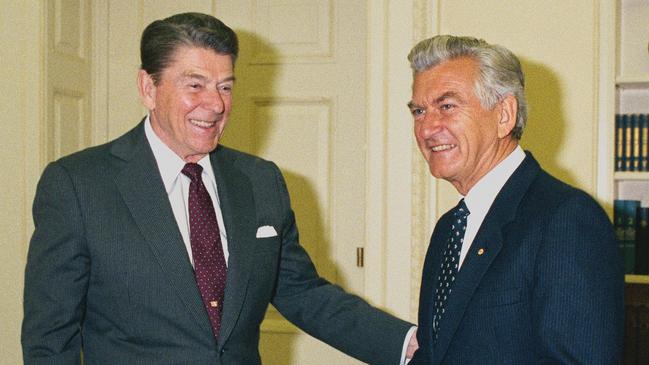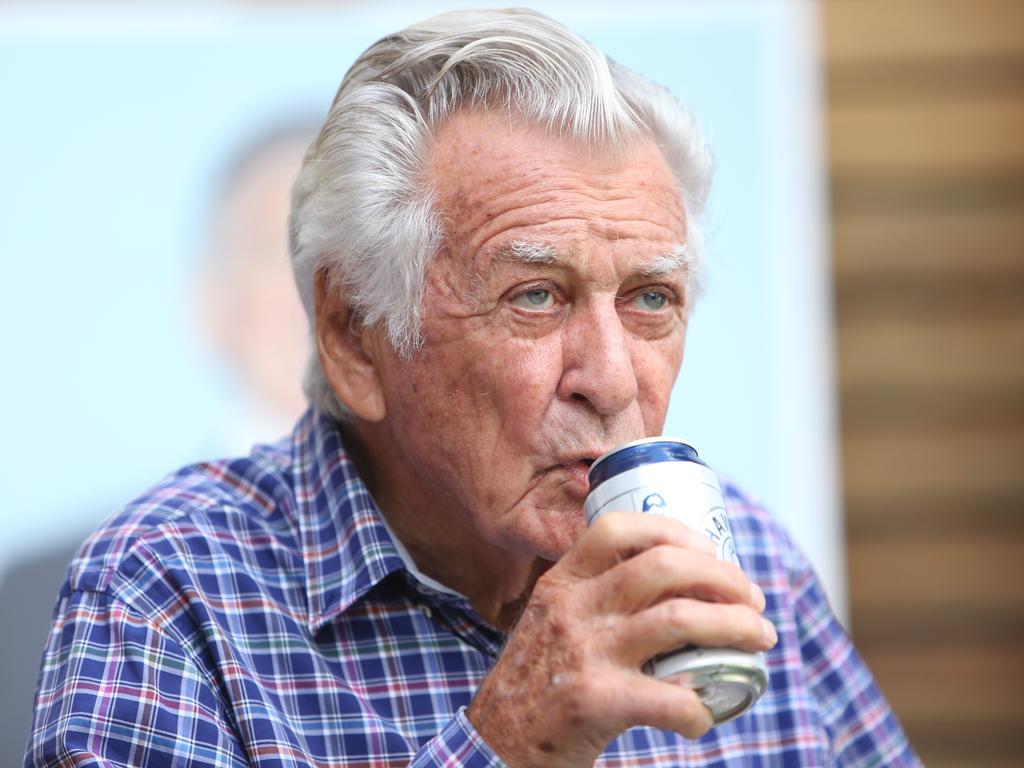US, Australia eager for 1980s China military co-operation, secret records reveal
Newly declassified files from the 1980s reveal the US and Australia discussed broadening military ties with China.

In the mid-1980s, Australia and the US supported stronger military-to-military co-operation with China that included technology transfer, arms sales, training and field forces, and co-ordination on tactics and logistics, to help counter the Soviet Union.
A “secret” meeting record between Bob Hawke and admiral William Crowe at US Pacific Command in Honolulu in February 1985 shows Hawke believed China would not “indulge in any adventurism” in the region, while Crowe thought China’s military build-up was “defensive” and would not be used “aggressively”.
Two meeting records of the discussion at the admiral’s residence have been declassified and made available to The Weekend Australian following a request to the National Archives of Australia. Hawke also met Ronald Reagan, secretary of state George Shultz, defence secretary Caspar Weinberger and Treasury secretary James Baker on the trip.

Crowe downplayed suggestions of a “military alliance” between the US and China but was enthusiastic about strengthening military ties. He had recently visited China “to broaden and deepen the US relationship”. He assessed Chinese military hardware as “primitive” and noted “logistical support was poor and safety standards abysmal”.
“The Chinese seemed to see the future of their military relationship with the US revolving around technology transfer,” the admiral explained.
“The US, on the other hand, would prefer the co-operation to be in the broader area of military exchanges – that is, exchanges in which the technology dimension would be but one aspect.”
The prime minister and the admiral were not concerned about Chinese military aggression in the region and were more worried about the Soviet Union.
China’s priorities were developing agriculture, industry, science and technology, with the military being fourth.
“China’s supreme objective was economic modernisation,” Hawke told Crowe. “The Chinese were logical in disclaiming external adventurism because such adventurism would be inconsistent with this principal objective.”
Crowe agreed. “The Chinese were still committed to their core principles in which the military had the fourth rung of priority,” he responded Hawke. “While they were determined to modernise the military, the bias was towards producing equipment themselves.”
But the US was reluctant to fully share its military technology.
The meeting took place at a time of growing concern about the Soviet military build-up, especially at Cam Ranh Bay in Vietnam, with “defence aircraft, communications capabilities, storage and land support facilities” unnerving the US and Australia. The US was especially concerned about risks to its interests in The Philippines.
“From the perspective of CINCPAC (Commander in Chief, Pacific Command), every year saw the acquisition by the Soviet Union of more and more potential to confront US forces far away from Soviet shores,” Crowe told Hawke. “The Soviets could now project force in the Pacific.”
On this visit, Hawke met with Reagan at the White House and discussed the Strategic Defence Initiative known as “Star Wars”.
Hawke, The Weekend Australian revealed in February, told the president it would likely be ineffective and could escalate the Cold War arms race.
The Weekend Australian also previously revealed meeting records of Hawke’s high-level talks with Chinese leaders and his urging of the US to support China’s aim of reunification with Taiwan. He wrote to Shultz in June 1986 arguing US “strategic interests” were served by solving “the Taiwan problem”.
Hawke was an enthusiast for China, marvelled at its economic transformation and built close relationships with Chinese leaders as prime minister and as a business consultant after he left parliament. But he savaged China’s leaders over their brutal suppression of Tiananmen Square pro-democracy demonstrators in mid-1989.
Troy Bramston is the author of Bob Hawke: Demons and Destiny (Penguin Random House)





To join the conversation, please log in. Don't have an account? Register
Join the conversation, you are commenting as Logout